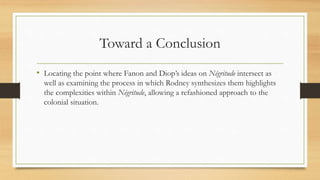This document discusses the Negritude movement and how Frantz Fanon and Cheikh Anta Diop situated it. It began in the 1930s as a literary and ideological movement by Francophone students to confront colonial racism. While both emphasized restoring black identity, Fanon saw Negritude as a response to colonial alienation, while Diop saw it as contingent on restoring pre-colonial African historical consciousness by locating African origins. The document also examines how Walter Rodney synthesized their ideas through his political documentary "The Terror and the Time" to intervene in controlling knowledge production.
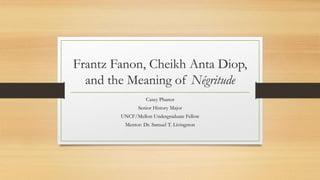
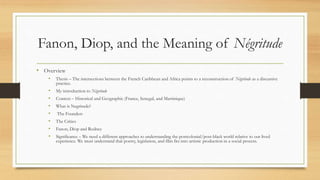
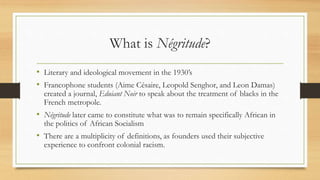
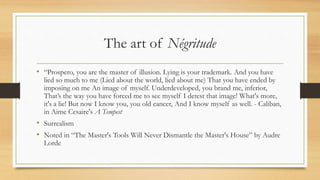
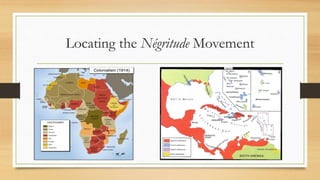
![Aimé Césaire and Leopold Senghor
• Césaire: “Négritude is the simple recognition of the
fact of being black, and the acceptance of this
fact.”
• Senghor: “[Négritude is ]the totality of civilizations
and its values within the black world…”](https://image.slidesharecdn.com/e91d9784-86dc-424a-bdf5-c5ad3556ffab-160523050233/85/AAS200NegrititudeLecture-6-320.jpg)
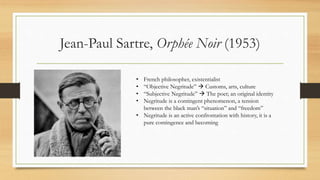
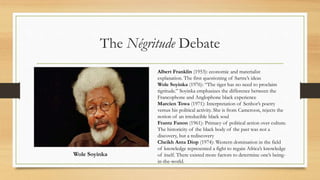
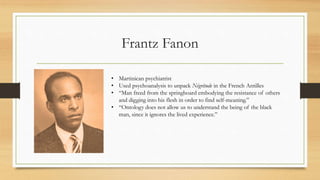
![Cheikh Anta Diop
• Senegalese physicist
• Saw Négritude as contingent to restoring black historical
consciousness
• “I approached the problem of black subjugation from a
different perspective than the literary anti-colonialist of the
1940’s. […] I realized that the cultural personality of a
people, of any people, was made up of three interrelated
factors. The psychic factor. The linguistic factor. The historical
factor.”
• “flight from one’s own language [as] the quickest shortcut
to cultural alienation.”](https://image.slidesharecdn.com/e91d9784-86dc-424a-bdf5-c5ad3556ffab-160523050233/85/AAS200NegrititudeLecture-10-320.jpg)
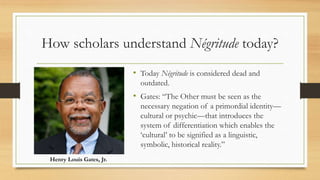

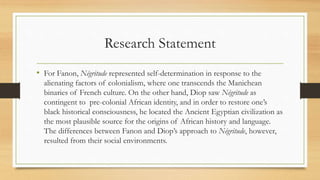
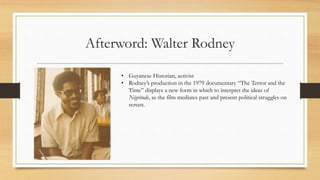
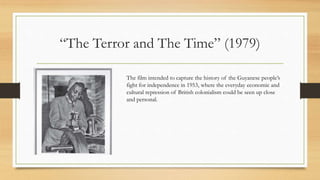
![Connections Between Rodney and Négritude
• The process of Rodney’s creative production in “The Terror and the Time” used
political struggle to formulate theories of liberation against the neocolonial state of
Guyana as well as the ruling elites’ attempt to control knowledge production.
• The documentary was an attempt to intervene into the Guyanese elite’s control of
knowledge production, while inserting revolutionary ideas which working people
could embrace.
• His film sought to ensure “creative production […] exists with the social division of
labor.” It was a social production because, like poetry, a film’s value can only be
realized through analysis.](https://image.slidesharecdn.com/e91d9784-86dc-424a-bdf5-c5ad3556ffab-160523050233/85/AAS200NegrititudeLecture-16-320.jpg)
